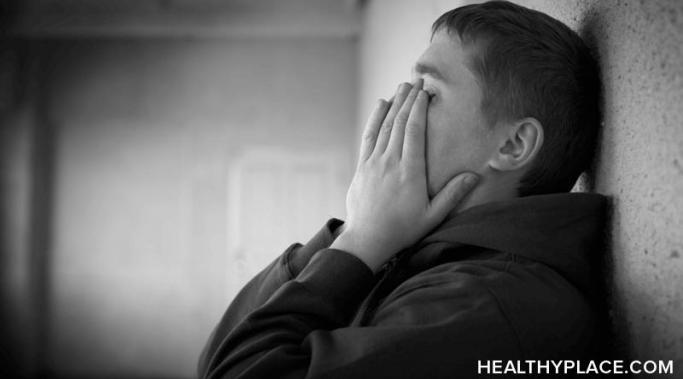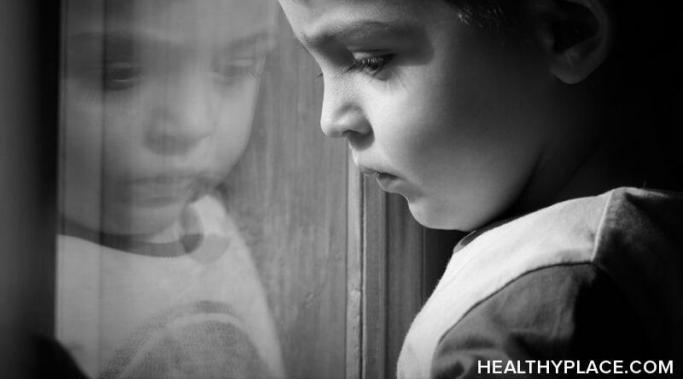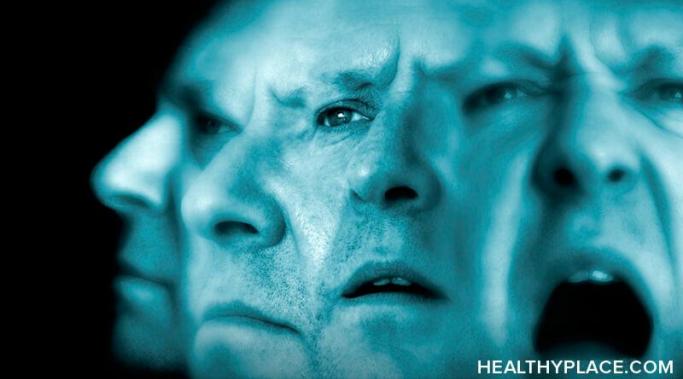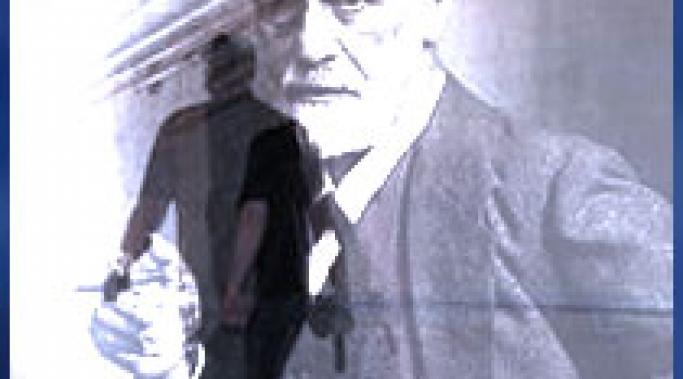Would I have developed schizoaffective disorder if I had gone to The School of the Art Institute of Chicago (SAIC) right out of high school instead of starting at the Rhode Island School of Design (RISD)? Even though I transferred to SAIC from RISD in the middle of my sophomore year, I seem to love to torment myself with this question. I know, deep down, that I probably would have developed the illness anyway.
Causes of Schizophrenia
It's 3:00 a.m. and I can't sleep. I'm sitting in the commons area of an eerily quiet psychiatric hospitalization unit while I recover from a relatively severe psychotic break. I wasn't going to blog this week because, well, the obvious. On top of that, all I have is pen and paper, no Internet access. But my wife still managed to post this week despite taking me to the hospital and picking up the slack in my absence. It is good to emulate one's heroes and I can think of no greater hero than my wife. I just wish I were a little more like her. But I have to remember that psychiatric hospitalization does not denote weakness.
Negative symptoms of schizophrenia offer a harsh reality for me. I noticed a change in my ability to feel emotion shortly after I began exhibiting symptoms of schizophrenia but long before formal diagnosis. I was well acquainted with feelings of depression and anxiety related to surviving child sexual abuse, but this was different. I lost interest in activities I formerly enjoyed, I no longer felt like associating with others and I felt a tremendous sense of indifference towards life in general. I was experiencing negative symptoms of schizophrenia.
I survived sexual abuse as a child, but did it contribute to my later diagnosis of schizophrenia? Research suggests a possible link between psychotic disorders and childhood trauma, but the exact nature of this link remains unclear. The significant impact of child sex abuse on my life, however, is indisputable.
My psychotic break happened years ago, but I still feel that what I believed was real, even though I know it wasn't. Likewise, my schizoaffective disorder doesn't feel like an illness. It feels like something that happened to me. My initial psychotic break doesn't feel like the onset of an illness. It feels like it was an event. Maybe it's because the things my mind told me were happening--that famous people were stalking me--seemed so very real.
I blame myself for my schizoaffective disorder, in reality, I know my schizoaffective disorder is not my fault. I know blaming myself doesn't make sense—especially since I live to fight mental illness stigma (Schizophrenia, Schizoaffective Disorder, and Self-Stigma). It doesn’t make sense for a lot of other reasons as well. Here’s why my schizoaffective disorder is not my fault--and why I blame myself for it anyway.
You don’t need schizoaffective disorder to wish you had the ability to go back in time to see if things would have worked out differently if you had known when you were younger what you know now. I’ll be honest with you, not a day goes by that I don’t wonder--if I had made different choices in my teens, would I still have gotten schizoaffective disorder (Causes of Schizoaffective Disorder)?
Developing schizoaffective disorder is not thought to be an effect of sexism. But for me, the depression that would turn into my bipolar disorder that would turn into my schizoaffective disorder was fueled by sexism. I felt ugly and alone--and some have said that loneliness is the seed that grows into mental illnesses like schizophrenia and schizoaffective disorder.
What is it that causes Schizophrenia? What is it that makes one see, hear and think the inconceivable? Freud believed that Schizophrenia was caused by repressed homosexuality, a theory with no solid evidence. Nevertheless the idea is still perpetuated amongst certain circles of psychoanalysts who are misguided by an outdated theory. Why is this?
A recent study by the Karolinsk Institute in Stockholm has provided evidence for what I have always believed; that there is a positive aspect to Schizophrenia. Though Schizophrenia is destructive to people afflicted with the illness, their family members are more likely to display brilliance in the arts and sciences. This seems true in my family as my brother is a renowned engineer and my sister a skilled Nurse Practitioner. Many of my relatives graduated from Ivy League schools and hold prestigious positions in society. Is it possible that my illness is linked to their success? According to this study this may be the case.









